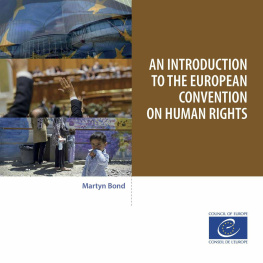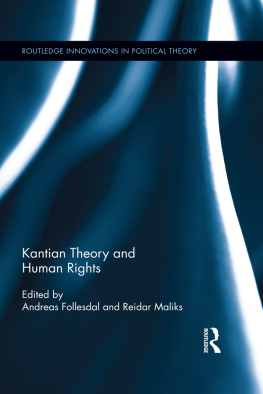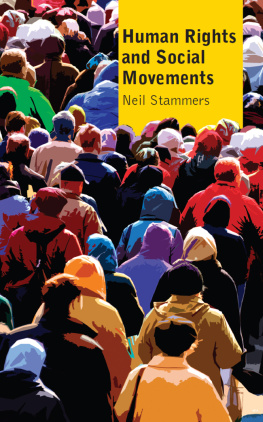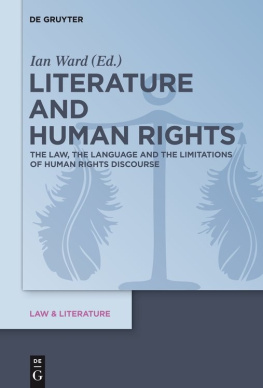First published by Zero Books, 2019
Zero Books is an imprint of John Hunt Publishing Ltd., No. 3 East St., Alresford,
Hampshire SO24 9EE, UK
www.johnhuntpublishing.com
www.zero-books.net
For distributor details and how to order please visit the Ordering section on our website.
Text copyright: Luke Gittos 2018
ISBN: 978 1 78535 687 2
978 1 78535 688 9 (ebook)
Library of Congress Control Number: 2017962512
All rights reserved. Except for brief quotations in critical articles or reviews, no part of this book may be reproduced in any manner without prior written permission from the publishers.
The rights of Luke Gittos as author have been asserted in accordance with the Copyright, Designs and Patents Act 1988.
A CIP catalogue record for this book is available from the British Library.
Design: Stuart Davies
Printed and bound by CPI Group (UK) Ltd, Croydon, CR0 4YY, UK
We operate a distinctive and ethical publishing philosophy in all areas of our business, from our global network of authors to production and worldwide distribution.
Contents
Introduction
In the course of writing this book, the UK was subject to three terrorist attacks in Westminster, Manchester and London Bridge. These followed two previous incidents of Islamist terror against the United Kingdom. The first involved the bombing of the London underground by Islamist terrorists in 2005 and the second involved the stabbing of Fusilier Lee Rigby outside his barracks in Woolwich during 2013.
These attacks took place alongside interminable debate about the Human Rights Act. The vote for Brexit in June 2016 raised new questions about whether we should remain under the jurisdiction of the European Court of Human Rights (ECtHR). The Court in Strasbourg, which passes human rights judgements which must be taken into account by our Courts, had been blamed in the popular press for holding up the deportation of terror suspects. Critics of the Court said in August 2015 that the Court was spiralling out of control after it was revealed that among the 94 successful claimants to the Court since 1975 were included convicted murderers, IRA gunmen and suspects linked to Islamist terror. It was thought, in the aftermath of the Brexit vote, that the Tories may have had a sufficient mandate to finally repeal the Human Rights Act, something that they had promised to do since 2005. Then, following a disastrous election result in 2017, in which Theresa May lost her overall majority, a weakened Tory party looked unlikely to repeal the Act before the 2022 election at the very least.
The starting point of this book is that our debate about Human Rights is so interminable, so marred in misinformation, because we are failing to properly address some of the key legal and moral questions of our time. Complex legal and moral questions are now left to Judges to decide, where the political and moral debates around them have been exhausted. Because we are unable to formulate a common political response to the questions raised by human rights cases, we become dependent on an unaccountable Judiciary to provide answers. This means both sides become entrenched. Human Rights proponents point to individual cases with apparently progressive results to make an argument that the Human Rights Act is a vital defender of the most vulnerable. Individual stories about the impact of the Act work to portray it as having a unique power to introduce compassion into our Court system. Human Rights detractors use broad and inaccurate statistics to suggest that the Human Rights Act prevents justice being delivered against the most serious criminals. Both of these approaches obscure the reality about what is at stake.
The Human Rights Act has passed significant control to judges to adjudicate over important questions regarding our political freedom. It has developed the political role of the Judiciary and granted them a greater say over significant matters in public life. It is this development that we should be discussing. This cannot afford to be a narrow, legalistic discussion. We cannot avoid the new circumstances that we face around the threat of nihilistic Islamist violence both at home and abroad. Rather than becoming unduly fearful about repealing the Human Rights Act, we should start by taking an objective look at how the Judiciary has purported to protect important political freedoms in the 17 years since the Act was passed. This book is a short contribution to this discussion.
We should remember that the left has traditionally been sceptical about the power of Judges to help safeguard freedom. My argument is that withdrawing the mechanism through which the Judiciary control our civil liberties would not immediately lead to a loss of freedom. In fact, our fear in the face of the arguments for repeal show how dependent we have become on the law and the Judiciary to answer the complex moral questions thrown up by contemporary life. This is not good for progressive, freedom orientated politics. We have nothing to fear from repealing the Human Rights Act if we are better equipped for the fight for civil liberty. This book is a short contribution to that fight.
Civil liberties in the UK
On Christmas Eve 2016, Munir Hassan Mohammed, 35, and Rowaida El-Hassan, 32 appeared at Westminster Magistrates Court. They were charged with offences relating to obtaining chemicals for use in explosions as prohibited by the Terrorism Act of 2000. Two others appeared alongside them charged with preparing acts of terrorism. News of the arrests and the Court appearances made the BBC morning news. The reporting of the hearing was unremarkable. A date was set for the case to be heard at the Old Bailey and the group were remanded in custody.
Many listening would no doubt have greeted the story with relief. The plot had involved the detonation of a bomb using a mobile phone in the lead up to Christmas. El -Hassan had allegedly owned a manual on how to make bombs that he had sent to other potential recruits. The group were also charged with being members of a proscribed organisation under the Terrorism Act for allegedly belonging to Islamic state. Few would be waking up on Christmas Eve with any sympathy for the plotters.
But something about this case made it the perfect starting point for a book about the state of human rights in the United Kingdom. In the final moments of the radio report the correspondent mentioned something that most people in the UK would simply no longer notice: the group had been held without charge for 12 days.
Its easy to ignore such an apparently trifling detail when the word terrorism is mentioned. The hearing in London took place just weeks after Anis Amri drove a lorry into German citizens enjoying a Christmas market in Berlin and at the end of a year that had seen devastating terrorist atrocities in cities across Europe. Between 2015 and 2017 similar attacks would strike cities across the continent, including London and Stockholm. The appalling attacks on the Bataclan and other sites across Paris were remarkable for their barbarity. The audience of that report could not have known that terror would strike in the UK throughout the year to come.
But its also easy to forget that detention without charge was, for a long time, considered antithetical to the British idea of human rights. The detention of these people for long periods of time, without providing sufficient evidence to charge them with a crime, would have been considered an affront to most common lawyers of the 19th Century.











